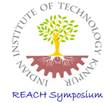

The Art of Experiments
Coordinators: R. C. Budhani, K. Muralidhar
The term experiment is context-specific and takes on unique meaning to each group of professionals. Science experiments are highly focused with the primary aim to prove or disprove a theory. Engineers pursue a much broader goal, such as performance enhancement of a device. This may entail application of a collection of techniques and methodology to accomplish the overall purpose. Biologists record, characterize and analyze species populations as a part of their experiments. Sociologists work with human populations and statistics to improve understanding of human behavior. There are great differences, division and points of departure, depending on the subject matter. Yet, the importance of experiments is a common refrain, universally emphasized across disciplines. Subjects to be covered in the symposium have been selected in such a way that an element of unification is accomplished when diverse groups conduct discussions at an abstract level. Specific topics included are: Measurement on multiple length scales; Measurement on multiple time scales; Interplay of experiments and theory; Technology-driven experiments; Forward and inverse measurements; Experiments in the service of humanity; Errors can make or break you. Abstract communication of this nature is expected to enhance cross-talk and lead to very fruitful inter-disciplinary research.
The topics identified for the symposium under the theme are:
- Interplay of Theory and Experiments (Asok K Mallik)
- Measurement on Multiple Length Scales (Sandeep Sangal)
- Measurement on Multiple Time Scales (A R Harish)
- Forward and Inverse Measurements (K Muralidhar)
- Measurement of Magnetic Forces: From Lodestones to Hard Disks (Soumen Mandal)
- Measurement of Fluid Forces: From Bernoulli to Batchelor (Gaurav Tomar)
- Environmental Measurements for Scientific and Societal Benefits (Mukesh Sharma)
- Experimental Error: How Much Can We Handle? (Debashish Kundu)